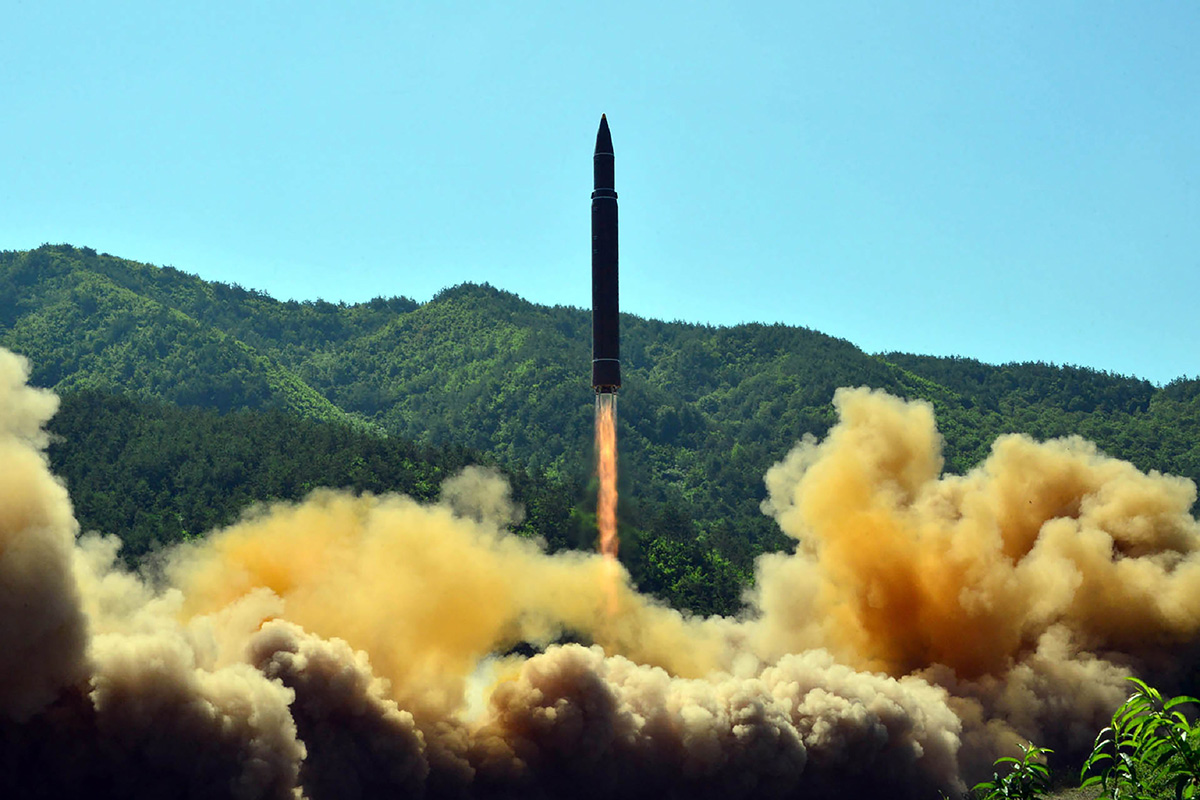North Korea has slammed recent sanctions over its missile tests as an “act of war” on Sunday, its first response to the latest diplomatic move to punish Pyongyang's ever-accelerating weapons drive.
"We fully reject the latest UN sanctions... as a violent breach of our republic's sovereignty and an act of war that destroys the peace and stability of the Korean peninsula and a wider region," Pyongyang's foreign ministry said in a statement carried by the state-run KCNA news agency.
The third raft of sanctions imposed on the North this year, sparked by last month's ICBM test, also received the backing of China – the North's sole major ally and economic lifeline.
According to Senior Fellow at the Singapore based ISEAS – Yusof Ishak Institute, Malcolm Cook, China has an integral role to play in making sure the sanctions effectively “bite” the hermit kingdom.
“For sanctions to work on North Korea, China is the key as over 90% of North Korea’s total international trade is with China. The US has been pushing China to reduce or stop energy exports to North Korea as a way to increase pressure on Pyongyang,” he said in an email response to The ASEAN Post.
The recent spate of UN sanctions was aimed at crippling North Korea’s economy and force it to abandon its nuclear ambitions. However, the Kim regime has been defiant in the face of mounting international pressure.
“International sanctions have had very little impact on the DPRK economy. For years the DPRK has survived using a network of shell companies and brokers overseas to obtain what it needs,” opined Senior Lecturer at University Malaya, Geetha Govindasamy, to The ASEAN Post.
Tension has been high on the flashpoint peninsula as the isolated but nuclear-armed regime has staged a series of atomic and intercontinental ballistic missile (ICBM) tests -- most recently on November 29.
The latest launch of the Hwasong-15 ICBM, seen capable of hitting all major US cities, further heightened global alarm over the rapid advance in the country's weapons technology.
Sanctions 'toothless'
The North has defended its missile and nuclear weapons programmes as measures for self-defence against "hostile" US policies towards Pyongyang.
And a defiant Pyongyang vowed on Sunday that the country would continue its weapons push "more vigorously" to "form a balance of power with the US".
"If you think that those toothless 'sanctions' could stop the victorious march of our people who have... achieved the historic goal of building the national nuclear weapons, there would not be a bigger mistake than that," the foreign ministry said.
"The US and its puppet followers should never forget the newly-upgraded status of our nation as a nation that could pose a real nuclear threat to the US mainland," it added.
The North claimed last month that its ICBM could deliver a "super-large heavy (nuclear) warhead" to anywhere in the US mainland.
But experts believe that Pyongyang has yet to develop the advanced technology to allow its rockets to survive re-entry into the earth's atmosphere.
The latest UN sanctions were hailed by US President Donald Trump, who tweeted, "The World wants peace, not Death!"
Trump and Kim have traded threats of war and personal insults against each other in recent months, prompting fears of another conflict on the peninsula once devastated by the 1950-53 Korean War.
Can ASEAN mediate?
Member states of the Association of Southeast Asian Nations risk suffering from the fallout if tensions in the Korean Peninsula aren’t resolved amicably. Any provocative act by North Korea will be of concern to ASEAN – even more when it involves weapons of mass destructions.
The association has long been a quiet option for mediation thanks to its relatively warm ties with Pyongyang.
According to Termsak Chalermpalanupap, Fellow at the Regional Strategic and Political Studies of the ISEAS – Yusof Ishak Institute, “ASEAN certainly would welcome if and when the DPRK wants to resume dialogue with other parties concerned”, adding that the ASEAN Regional Forum (ARF) – of which North Korea is part of – might be a good platform to do so.
“So far there is no movement to expel North Korea from the ARF. This is good. I believe their participation in the ARF is one good channel for them to interact and socialize with others. At least they can explain their security concerns,” he said in an email response to The ASEAN Post.
Additional reporting by Agence France Presse (AFP)
Recommended stories:
